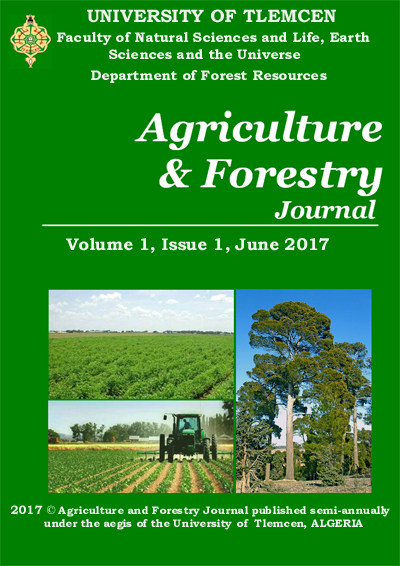Economic losses caused due to wood defects in Shorea robusta (Sal) at tropical forest of Nepal
DOI:
https://doi.org/10.46325/afj.v7i2.133Keywords:
defects, products, categories, attacksAbstract
Wood defects are considered to be irregularities and abnormalities in wood that are caused by both natural and artificial factors like fungal attacks, deposit of rain water in woods, methods of harvesting, rapid tree growth etc. This study has focused on studying economic loss caused by cracks, shakes and rot defects on Shorea robusta and comparing economic loss among wood defects on Shorea robusta which was conducted at Nepal Ban Nigam Ltd.'s wood sawmill in Ithari, Nepal. Logs of Shorea robusta used in this research are brought from Kumarkhet National Forest, Sunsari and are separated into three categories, i.e., logs without defects (category A), logs with cracks and shakes (category B) and logs with rot (category C). Logs are converted into fine products along with the production of by-products. This research study has shown that about 77% of the sized timber has been harvested from category A logs. Similarly, 54% of the sized timber was from category B and 43 % from category C. If we assumed 77% as the total main product harvested from a log with a fine quality log, it has been observed that shakes and cracks have caused 24% of the loss in timber, whereas 43% of the loss in timber has been caused in logs with rot defects. Overall economic losses, including by products, were 24.22% and 43.13% in categories B and C, respectively.
Downloads
Published
How to Cite
Issue
Section
License
Copyright (c) 2023 Madan Raj BHANDARI, Subodh BHATTARAI, Basanta Raj BHANDARI

This work is licensed under a Creative Commons Attribution-NonCommercial 4.0 International License.









